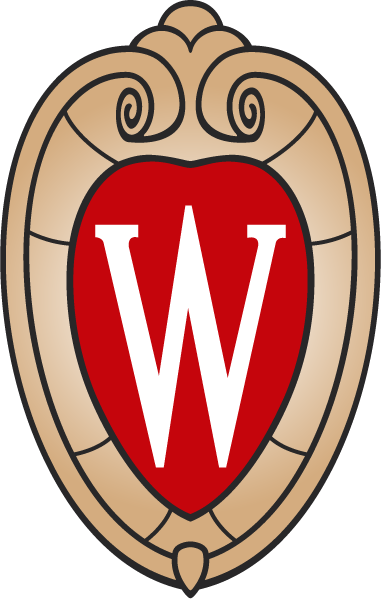
Summary
Improve your professional proficiency in Spanish and gain the cultural knowledge you need to do business with clients and colleagues from across Spain and Latin America. Learn to communicate professionally via email, telephone and videoconferencing in this practical skills-based certificate.
This fully online certificate program for working professionals provides flexibility and personalized learning. Prerequisite: Intermediate level of Spanish or Spanish 5.
Before you register for this class, please take the Spanish 5 self–placement test, and send the results to the instructor, Silvana Benzoni at [email protected]. As you take the test, ask yourself if you would be able to produce the correct response in spontaneous speech. If the answer is yes for most of the questions, then you're probably ready for Business Spanish Certificate. Thank you for taking this extra step to ensure that this is the best course for you.
Overview
In four months, the Business Spanish Certificate gives you essential skills to conduct business in a Spanish-speaking environment. The program consists of 15 practical lessons available through the online platform CANVAS that you access at your convenience during the week. You will work closely with your instructor to put into practice what you are learning, including a mock interview. You will receive personalized feedback on relevant real-life assignments that are tailored to your professional needs. Throughout the program, you will interact with a cohort of other professionals through discussion boards and four live optional conversation sessions moderated by your instructor.
Course includes
- 15 online units with audiovisual materials
- 2 one-on-one videoconferences with your instructor (including a mock interview)
- Personalized feedback on 12 short writing assignments that are relevant to your professional sector
- Personalized feedback on one recorded professional presentation
- Four optional live conversation sessions with other participants
- Interactive quizzes and flashcards
Key topics
- Speaking professionally
- Composing professional emails
- Discussing your own background and skills
- Gaining vocabulary specific to your professional area
- Understanding business etiquette in Spanish-speaking countries
- Communicating via phone and videoconferencing
- Interviewing and hiring
- Talking about your company’s services and structure
- Creating professional documents
Optional live virtual conversation sessions:
These optional live conversation sessions (via Zoom) provide an opportunity for course participants to meet other professionals, practice speaking professionally in Spanish, and interact directly with the instructor. Since participants have different schedules and live in different time zones, participation is encouraged, but not required.
Tentative schedule for spring 2026 optional live conversation sessions:
- To be determined.
Why earn this certificate?
UW–Madison Continuing Studies' Online Business Spanish Certificate program is the only academic program of its kind in the Midwest.
Long renowned as one of the foremost academic institutions in the country, UW–Madison provides unparalleled service to post-traditional students. UW–Madison Continuing Studies develops and delivers more than 20 professional certificate programs in a wide variety of callings and careers — including Business Spanish. Through our unique combination of experience, innovation, and credibility, we can help you stand out in an increasingly competitive environment.
Who is this course is for?
- Business professionals who need hands-on skills for their current positions
- Professionals who wish to expand their career opportunities by acquiring the ability to work cross-culturally
- MBA students who are considering careers in international business
- Professionals working for NGOs who work with Spanish-speaking countries
- Heritage speakers of Spanish looking to professionalize the language skills they already have
- Anyone interested in gaining practical language and cultural skills
- Undergraduates looking to prepare themselves for a competitive global market
What level of Spanish do I need?
- The Certificate Program requires an intermediate or advanced level of Spanish. The higher your level of Spanish at the beginning of the program, the more you can take advantage of the practical skills it offers. Spanish 5, our high-intermediate (B1.1) level, is the prerequisite. If you are uncertain about your level of Spanish, take the Spanish 5 self-placement test, record your score, and share it with Silvana Benzoni at [email protected] for more guidance.
Course outline
Course outline
Below are the themes and grammar topics for each unit. Each unit also includes written content, videos, audio messages, dialogues, grammar activities and cultural information related to the unit theme.
Unidad 1: Primeros encuentros
- Correct use of formality
- Introductions and forms of greeting
- Names and titles in the Spanish-speaking world
- The importance of the group in the Spanish-speaking world
- Review of the present tense and saber vs. conocer
- Review of written accent marks
Unidad 2: La formalidad por escrito
- Writing professional emails, scheduling in-person meetings, dates, and important forms of documentation
- Spelling and giving personal information over the phone
- The role of family in the Hispanic culture
- Holidays in the business world
- Direct and indirect object pronouns
- Use of hay que for obligations
Unidad 3: La formalidad en persona
- Business etiquette: expressions of courtesy and apology statements
- The role of physical contact and personal space
- The art of conversation in the Spanish-speaking world
- The terminology debate between hispano/latino
- Time in the Hispanic world
- Ser estar
Unidad 4: Las profesiones y la empresa
- Looking inside businesses: different professions, organizations, and positions within a company
- The geography of the Spanish-speaking world and the many economies of Latin America
- Gustar and similar verbs
- Use of definite and indefinite articles
Unidad 5: El curriculum vitae
- Resumes, CVs, and cultural differences in the job application process
- Using online templates and new trends in hiring
- Language and linguistic diversity in Latin America and Spain
- Review of past tenses
Unidad 6: La formación educacional
- The diversity of educational systems in Spain and Latin America
- Discussing degrees, study abroad, and professional training
- The ethnic diversity of Spain and Latin America
- The contrast between past tenses
Unidad 7: La experiencia profesional
- Professional and labor experience including volunteer work and internships
- The labor crisis and future goals
- Unemployment in Hispanic countries
- Grammar structures for talking about a duration of time
Unidad 8: Las redes, la tecnología y el perfil digital
- The role of social networks, technology, and professional online profiles in the business world
- Sought-after employee characteristics
- Creating a video resume
- Cultural differences in adopting technology
- Bureaucracy and paperwork in the Hispanic world
- Impersonal se
Unidad 9: La búsqueda de trabajo
- The job search and job postings
- Where to look for job help: employment agencies, job fairs, and filling out forms
- Cultural differences in a typical workday/week
- The culture of having "connections"
- Formal commands in Spanish
- Por para
Unidad 10: La aplicación y la carta de solicitud
- Applying for a job, soliciting interviews, writing cover letters, and common types of interview advice
- Workplace discrimination
- Phone conversation with the professor
- The subjunctive
- Speaking with large numbers and statistics
Unidad 11: Preparación para la entrevista
- Preparing for a job or business interview
- Job interview typical questions, strategies for difficult questions and tips to ask questions and not just answer
- Hiring personnel
- Gestures and body language
- More subjunctive
Unidad 12: La entrevista de trabajo virtual
- Simulated remote job interview: technical and audio-visual tips
- Tips for before, during, and after the interview
- Simulated video interview with the instructor
- Professional protocol
- Future tenses in Spanish
Unidad 13: Estudio de caso: el país y su economía
- Case study: Select a country and research important background data, general information, and economic and business climate.
Unidad 14: Estudio de caso: el sector y el producto
- Case study: Select a business or service sector and define the product or service that you will offer to solve an ongoing problem in that country. Consider the total cost of ownership, the potential risk of failure, and the benefits.
Unidad 15: Estudio de caso: el consumidor y el marketing
- Case study: Identify relevant trade and professional associations, trade fairs, and professional groups that could provide important bridges to breaking into a new market. Research competitors and consumer trends to determine marketing strategies for your sector and the local population. Prepare a clear and concise business case for your project.
Earn Continuing Education Hours
By participating in this class you will earn:
| Instructional Hours | 75 |
| University of Wisconsin Continuing Education Units | 7.5 |
Upcoming dates (1)
Business Spanish Certificate Program
Course #: 7000-C-LAAS-4775-26-LSA
Fee: $749 For registration assistance: 608-262-2451
continuingstudies.wisc.edu/7000-C-LAAS
Fee
$749
Schedule
Jan. 28–May 29
Registration through: January 27, 2026
All times shown in central time.
Instructor
Subject Area:
Cancellation Policy
- Cancel before the course opens: and receive a full refund minus a $25 administrative fee.
- Partial refunds in extenuating circumstances may be available after the course starts. Please contact Erin Paul at [email protected].
